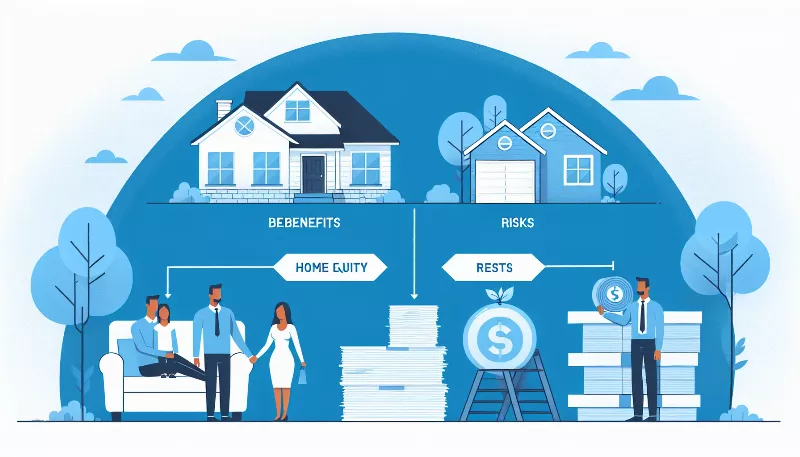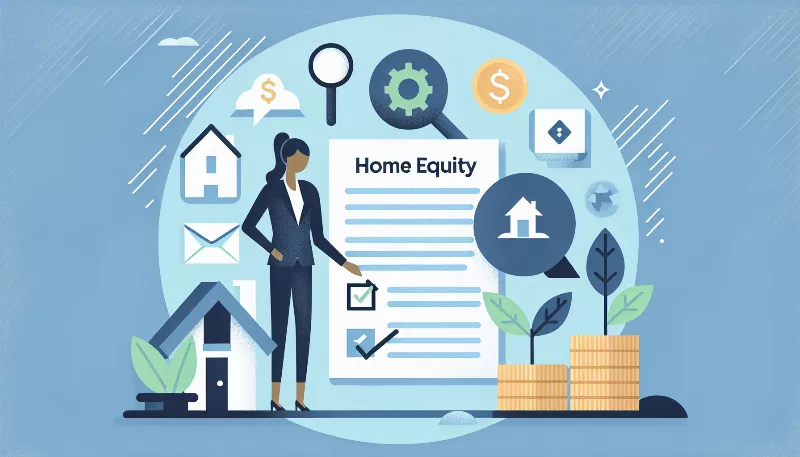What are the tax implications of a home equity loan?
Unlock the secrets of home equity loans and their tax impact. Learn how to maximize deductions and save money. Essential tips for homeowners!

Unlocking the Financial Potential of Your Home
Are you considering tapping into your home's equity with a home equity loan? It's a fantastic way to leverage your most valuable asset for various financial needs, from remodeling your kitchen to consolidating debt. But before you dive in, it's crucial to understand the tax implications that come with this financial decision. Let's embark on an exciting journey to unravel the mysteries of home equity loans and their impact on your taxes!
The Basics of Home Equity Loan Tax Deductions
First things first: what exactly is a home equity loan? In simple terms, it's a type of loan where borrowers use the equity of their home as collateral. It's a fixed amount of money, often at a fixed interest rate, making it a predictable and stable borrowing option. Now, onto the tax part! Historically, the interest paid on home equity loans was potentially tax-deductible. However, the rules changed with the Tax Cuts and Jobs Act of 2017.
Under the new law, interest on home equity loans is only deductible if the loan is used to buy, build, or substantially improve the taxpayer's home that secures the loan. This means that if you use the loan for personal expenses, like paying off credit card debt or taking a lavish vacation, you can't deduct the interest on your tax return.
Understanding 'Acquisition Indebtedness'
The term 'acquisition indebtedness' might sound like financial jargon, but it's a key concept in the world of home equity loans and taxes. It refers to money borrowed to acquire, construct, or substantially improve a qualified residence. If your home equity loan falls under this category, congratulations! You're on the path to potential tax deductions. Just remember, there are limits. The total amount of debt eligible for interest deduction cannot exceed $750,000 for married couples filing jointly or $375,000 for individuals or married couples filing separately.
When Home Equity Loan Interest Is Not Deductible
It's important to note that not all home equity loan interest is deductible. If you're using the funds for purposes other than home improvement, such as debt consolidation or education expenses, the IRS won't allow you to take the interest deduction. This is a critical distinction that can significantly affect your tax situation.
Keeping Records Is Key
Documentation is your best friend when it comes to home equity loans and taxes. Keep meticulous records of how you use the loan funds, especially if you're planning to claim a deduction for interest. Receipts, contracts, and statements can be lifesavers if the IRS ever questions your deduction.
Consulting with Tax Professionals
While understanding the basics of home equity loan tax implications is essential, tax laws can be complex and ever-changing. That's why consulting with a tax professional is always a smart move. They can provide personalized advice based on your specific situation and help you navigate the tax maze with confidence.
In conclusion, a home equity loan can be a powerful tool for managing your finances, but it's vital to grasp the tax implications. By using the loan for qualifying home improvements, keeping thorough records, and seeking expert advice, you can make the most of your home equity while staying on the right side of the tax laws. So go ahead, dream big about your home's potential, and let your equity work for you!









